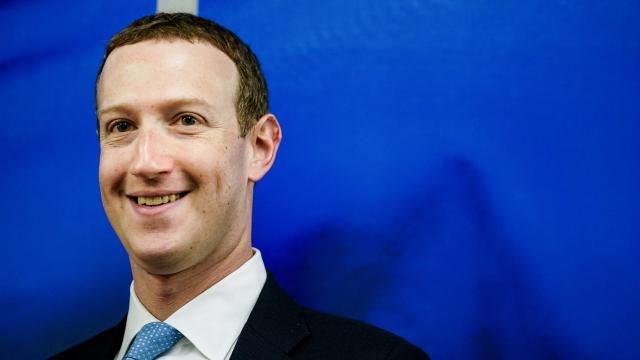In the wake of a carpet-bomb of Bloomberg-sponsored memes, The New York Times reported rumblings of nervous activity over at Facebook HQ this week. Several meme accounts, including previous FyreFest shills FuckJerry, had mobilised into an entity called “Meme 2020”; Bloomberg appeared on dozens of feeds with millions of followers, photoshopped in board shorts, flouting vague political ad policies; a new era of political sponcon was upon us.
A Facebook employee told the Times that a team circulated the story and “immediately” assembled to “scour Facebook and Instagram for examples of influencers who had posted favourable Bloomberg content.” A memo! A probe! In record time, Facebook’s director of product Rob Leathern announced the release of a catalogue of user-generated Instagram and Facebook posts sponsored by political campaigns. Let’s tab over there and see what they’ve discovered. Oh, ten Instagram accounts…
Facebook’s report comes in the form of two new columns on its CrowdTangle for Facebook and Instagram “branded content” posts that are politically-sponsored. The meager list follows familiar Zuckerbergian libertarian bureaucratic logic: Facebook is only counting posts that users have opted to self-identify as “branded content” through Facebook’s “branded content” tool. The tool has long existed for more traditional sponcon, defined as “a creator or publisher’s content that features or is influenced by a business partner for an exchange of value” (for example, Lady Gaga selling an Intel product).
According to the New York Times, Facebook does not collect any revenue from branded content, but Facebook requires that users disclose the amount of money exchanged in compliance with “all applicable laws and regulations” such as these. (The tool adds a “paid” label in the metadata, and users get “promotional elements” like “graphical overlays, watermarks, and logos.”)
Interestingly, Facebook didn’t allow politicians to use branded content until Bloomberg made the topic unavoidable. Also interestingly, the Times reported that Facebook subjects branded content creators to fact-checks. Very interestingly, most of the memes have been stylised as DMs quoting Bloomberg. A Facebook spokesperson has not responded to Gizmodo’s query of whether the parody quotes would be subject to fact-checking, but Bloomberg has used satire that skirts social media platforms’ misinformation policies in the past and raises the question of whether this kind of format could have potential to do the same in the future.
After bombing in the Nevada debates, he tweeted a video that was heavily-edited to look as though fellow candidates were left utterly speechless after his “I’m the only one here who’s ever started a business” line. His campaign also tweeted a series of fake quotes that it attributed to his opponents and only acknowledged that they were satire deep into a multi-tweet thread. Those tweets were later deleted.
But Facebook evidently allows sponsored posts that aren’t marked “branded content” to remain, even those explicitly captioned with sponsorship disclosures.
To wit, a post by ShitheadSteve, captioned:
How do you do, fellow kids? (And yes this is really #sponsored by @mikebloomberg).
That is not on the “branded content” list.
This is “branded content”:
…because WorldStar used Facebook’s “branded content” tool:
A source familiar with the matter told Gizmodo that Facebook is resistant to assuming that money was exchanged for a sponsored post in the absence of self-reporting through the tool. So when an influencer says “yes this is really #sponsored by @mikebloomberg” in a post, it could mean anything, really.
There is no spoon.
So Facebook could catalogue posts that self-identify as sponsored political content, but they don’t, and as a result, a majority of Bloomberg’s posts don’t make the list. It makes sense that meme accounts wouldn’t bother; as Leathern tweeted last night, meme accounts have to change their statuses to “business” or “creator” to do so. Accounts that have previously violated community standards are automatically disqualified from using the tool at all.
As a result, the CrowdTangle posts only go back as far as this month, when the political “branded content” offering was extended to campaigns. Absent are various widely-publicized Bloomberg posts, which have all been labelled as “sponsored” in captions (see ShitheadSteve, MrsDowJones, NeatDad, and MiddleClassFancy).
On top of that, Facebook doesn’t appear to catalogue ads from accounts that have gone private, a common strategy to force follows. Nor has it archived ads from accounts that have deleted sponsored posts, excluding a large contingent of prominent Bloomberg-affiliated accounts (Combined, such accounts include MyTherapistSays, adam.the.creator, TheFunnyIntrovert, moistbuddha, TrashCanPaul, FourTwenty, DrGrayFang, FunnyHoodVidz, BangerBuddy, Nugget, and Wasted).
Complicating things further, some accounts aren’t marking sponcon at all. Reported Meme 2020 member cohmedy, for example, has posted Bloomberg–promoting posts with no sponsorship disclosure.
https://instagram.com/p/B8FTvjvHUHm
And then, this is Facebook. Yesterday, Facebook COO Sheryl Sandberg reaffirmed to NBC’s Dylan Byers that fact-checking political ads is “really not something anyone is capable of doing.” This is a lie. A lie that Sandberg followed with an irrefutable fact, that Facebook doesn’t want to be “the arbiter of the truth.” Facebook’s noncommittal attitude toward transparency is evidenced in its Ad Library, which analysts have described as buggy and unnavigable.
As FEC spokesperson Christian Hilland told Gizmodo earlier this month, the FEC hasn’t yet drafted rules around influencers and will be powerless to do so unless the Senate appoints a new commissioner, which, thanks to political gridlock, likely won’t happen until long after Bloomberg has or has not successfully bought the election.
So we have Facebook. And Facebook has this list.
